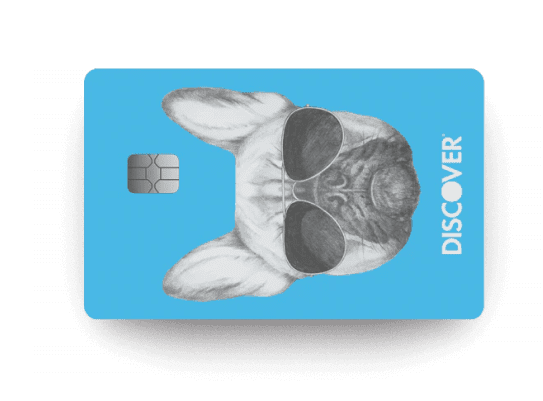Student credit cards can offer an opportunity to improve your financial literacy while earning rewards geared towards students. You do have to be a student to get a student credit card. Otherwise, the card should work similarly to any other credit card.
If you’re exploring using a credit card for the first time, you may have some questions about student credit cards. Below, find some of the answers to help you take the right next steps for you.

How Does the Discover Student Credit Card Work?
Next steps


See rates, rewards and other info
You may also be interested in
Was this article helpful?
Was this article helpful?
-
You earn a full 2% Cashback Bonus® on your first $1000 in combined purchases at Gas Stations (stand-alone) and Restaurants each calendar quarter. Calendar quarters begin January 1, April 1, July 1, and October 1. Purchases at Gas Stations and Restaurants over the quarterly cap, and all other purchases, earn 1% cash back. Gas Station purchases include those made at merchants classified as places that sell automotive gasoline that can be bought at the pump or inside the station. EV Charging Station purchases made at public electric vehicle charging stations are also included. Gas Stations and EV Charging Stations affiliated with supermarkets, supercenters, and wholesale clubs may not be eligible. Certain parking garages where public electric vehicle charging is offered or included may not be eligible. Restaurant purchases include those made at merchants classified as full-service restaurants, cafes, cafeterias, fast-food locations, caterers, and restaurant delivery services. Restaurants located inside of or affiliated with another business, such as hotels or retail stores and establishments classified as a bakery, may not qualify. Purchases must be made with merchants in the U.S. To qualify for 2%, the purchase transaction date must be before or on the last day of the offer or promotion. For online purchases, the transaction date from the merchant may be the date when the item ships. Rewards are added to your account within two billing periods. Even if a purchase appears to fit in a 2% category, the merchant may not have a merchant category code (MCC) in that category. Merchants and payment processors are assigned an MCC based on their typical products and services. Discover Card does not assign MCCs to merchants. Certain third-party payment accounts and digital wallet transactions may not earn 2% if the technology does not provide sufficient transaction details or a qualifying MCC. Learn more at Discover.com/digitalwallets. See Cashback Bonus Program Terms and Conditions for more information.
-
$0 Fraud Liability: An “unauthorized purchase” is a purchase where you have not given access to your card information to another person or a merchant for one-time or repeated charges. Please use reasonable care to protect your card and do not share it with employees, relatives, or friends. Learn more at Discover.com/fraudFAQ.
-
Build credit with responsible use (Student): Discover reports your credit history to the three major credit bureaus so it can help build your credit if used responsibly. Late payments, delinquencies or other derogatory activity with your credit card accounts and loans may adversely impact your ability to build credit.
-
There is no hard inquiry to your credit report to check if you’re pre-approved. If you’re pre-approved, and you move forward with submitting an application for the credit card, it will result in a hard inquiry which may impact your credit score. Receiving a pre-approval offer does not guarantee approval. Applicants applying without a social security number are not eligible to receive pre-approval offers. Card applicants cannot be pre-approved for the NHL Discover Card.
-
Legal Disclaimer: This site is for educational purposes and is not a substitute for professional advice. The material on this site is not intended to provide legal, investment, or financial advice and does not indicate the availability of any Discover® product or service. It does not guarantee that Discover offers or endorses a product or service. For specific advice about your unique circumstances, you may wish to consult a qualified professional.




